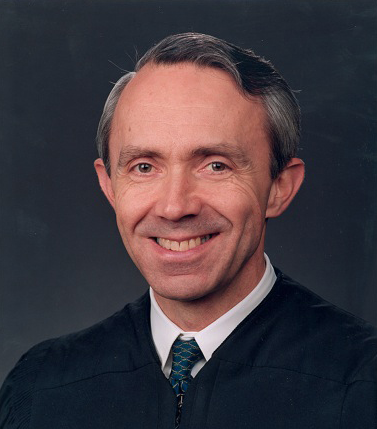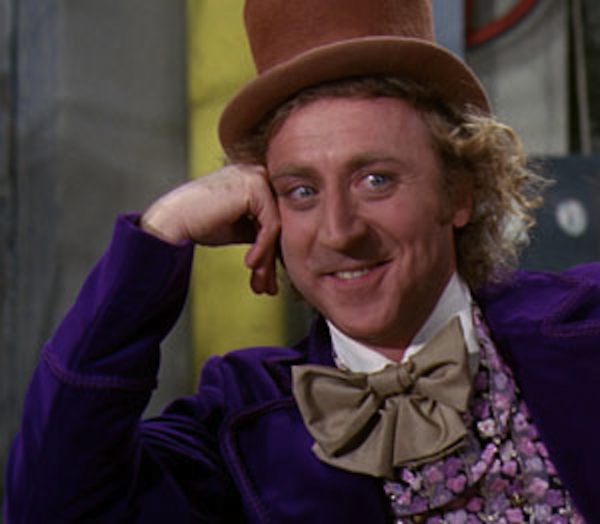Supreme Court Justice David Souter Dies After Accidentally Breaking The Judiciary
David Souter reminds us of an era when the Supreme Court wasn't completely broken. The post Supreme Court Justice David Souter Dies After Accidentally Breaking The Judiciary appeared first on Above the Law.


Retired Supreme Court Justice David Souter died Thursday at 85. Nominated in 1990 by President George H.W. Bush, Republicans expected Souter to continue the rightward capture of the Court — replacing liberal William Brennan with a stalwart conservative. Instead, Souter revealed himself as the model of a conscientious jurist, bucking ideological pressures to place the law ahead of Party. During the same week that Chief Justice Roberts declared, “The idea that it’s invariably a bad thing to overrule precedent is, I think, quite mistaken,” Souter stood in sharp contrast for his defense of the precedents settled by the generation of justices before him from abortion to civil rights.
And along the way he accidentally set off a judiciary-destroying chain reaction that would make Palsgraf blush.
Conventional wisdom would eventually describe Souter as a liberal, though this shorthand was probably never fair. His “liberal” stances more or less amounted to “let’s not take a wrecking ball to the Constitution and established precedent.” For a Republican judge elevated in a post-Bork, post-Scalia, post-Thomas world, Souter was expected to approach the job with a revisionist zeal that didn’t fit his belief in a more — for lack of a better term — traditional judge’s role.
When he didn’t fit that mold, conservatives committed to building a stronger mold.
Souter’s 1990 nomination was orchestrated by then-White House Chief of Staff John Sununu, a New Hampshirite, who was familiar with Souter as a former New Hampshire Supreme Court justice before being elevated to the First Circuit. The Harvard Law graduate was a relatively unknown figure on the national stage with only a few months as a federal appellate judge. His sparse paper trail made him an appealing candidate for a swift confirmation after the contentious Clarence Thomas fight earlier that year.
The Senate confirmed Souter 90–9. Conservatives believed they had secured a reliable ally on the bench. They were wrong.
“I think the Souter disappointment and what happened before him with Bork was the red flag, if you will, to conservatives,” Sununu said on an episode of More Perfect ominously titled, No More Souters. “And frankly, I think it was a major impetus among other things for the efforts of groups like the Federalist Society that put together a list of judges for Trump and so on.”
While Souter was never really an ideologue, his lack of ideological fervor found him routinely siding with the liberal justices. His vote in Planned Parenthood v. Casey reaffirmed the core holding of Roe v. Wade, before the current Court decided the Founding Fathers wanted a time-traveling 17th century witch hunter in charge of reproductive rights. Souter’s jurisprudence was characterized by a commitment to judicial restraint and a cautious approach to constitutional interpretation.
His opinion that, no, actually, we don’t have to let the Supreme Court unilaterally choose the president solidified right-wing rage into a white hot ball and made “No More Souters” a rallying cry.
Enter the Federalist Society. While it cosplays as a non-partisan student debating society-cum-Chick-fil-A fan club, the Federalist Society’s primary role, as mentioned by Sununu above, is vetting future conservative judges. With an approach not quite cradle-to-grave as much as law school-to-life tenure, the Federalist Society identifies the biggest trolls in your Civ Pro lecture and begins grooming them to take the bench when they’re ready.
Or, much more often at this point, when they’re not at all ready.
Souter took his place alongside breaking the “no new taxes” pledge as part of George H.W. Bush’s great sins with conservatives. By the time we dropped the H and got to George W. Bush’s presidency, the Federalist Society made sure Souter wouldn’t happen again. By Donald Trump’s first term, the Republicans stopped pretending that they hadn’t farmed the nomination process out to the Federalist Society and Leonard Leo with a Post-it note that said “MOAR ALITOS PLS.”
Whether Souter allowed the GOP’s this shift to pure ideology as a litmus test to influence his plans or not, he did ultimately choose to retire in 2009 to allow President Obama to appoint Sonia Sotomayor as the Court’s first Latina justice.
Penn Law professor Kermit Roosevelt III, who clerked for Souter, told More Perfect:
Bush v. Gore was upsetting to Justice Souter, and I think he’s said that publicly because it looked as though the justices were behaving as partisans and partisanship is what Justice Souter most firmly believes should not be a part of judging. So, I think it shook his faith in the institution. I think that No More Souters is sort of a poignant phrase because there aren’t justices like David Souter anymore. But I think that justices like David Souter are what we need.
Unfortunately, they’re justices that will be few and far between in the near future. Republicans have already targeted Amy Coney Barrett with Souter-esque disdain for having the audacity to take mere half-steps away from orthodoxy. And while Democrats historically maintain a commitment to a muted pragmatic liberalism in their judicial picks, the day is coming when they’ll be mugged by reality and appoint judges who wear ideology more on their sleeve — if only as a matter of tit-for-tat self-preservation.
Had David Souter arrived at almost any other time than the crossroads of the H.W. Bush years, his apolitical approach probably wouldn’t have prompted an organized, movement-based backlash committed to ushering the next FedSoc Treasurer to a one-judge courthouse in the middle of nowhere to spend their life firing off nationwide injunctions or trying to fight law students for the sake of cable news content or rewriting plain English or inventing new categories of damages for hurt feelings.
David Souter is a reminder of a time when the Supreme Court was less polarized and justices were not strictly vetted for ideological purity. He should be a model for judges everywhere. Hopefully, the renewed focus on his record over the coming days will also accidentally inspire a counter-revolution and remind everyone that the Court doesn’t actually have to be the way it is right now. Which is a legacy more in line with what he deserves.
 Joe Patrice is a senior editor at Above the Law and co-host of Thinking Like A Lawyer. Feel free to email any tips, questions, or comments. Follow him on Twitter or Bluesky if you’re interested in law, politics, and a healthy dose of college sports news. Joe also serves as a Managing Director at RPN Executive Search.
Joe Patrice is a senior editor at Above the Law and co-host of Thinking Like A Lawyer. Feel free to email any tips, questions, or comments. Follow him on Twitter or Bluesky if you’re interested in law, politics, and a healthy dose of college sports news. Joe also serves as a Managing Director at RPN Executive Search.
The post Supreme Court Justice David Souter Dies After Accidentally Breaking The Judiciary appeared first on Above the Law.






















































































































































